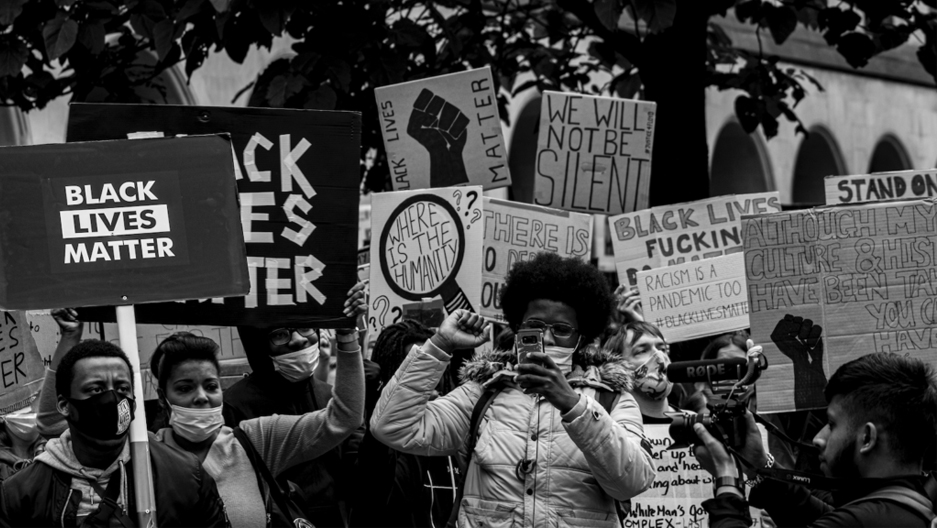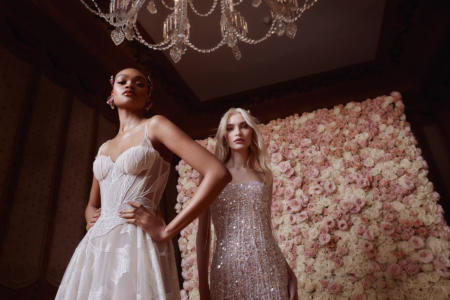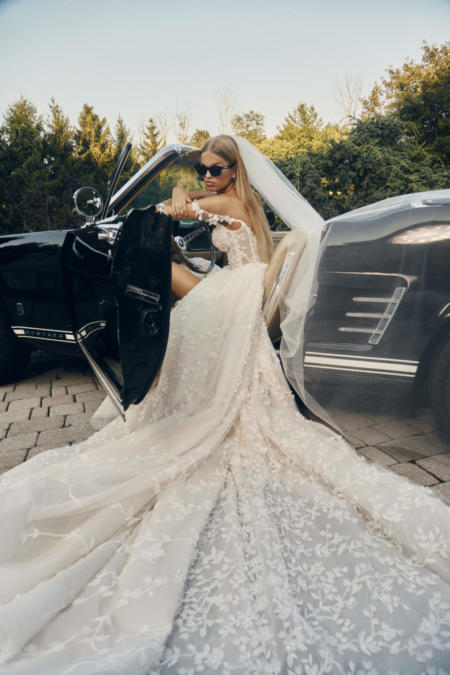
Over the past couple of weeks, we decided to take a step back and just listen to members of our community, on how we are able to use our platform for good.
Admitting firstly that we can and should do more and do better. This has opened an opportunity for us to engage in a dialogue with our followers- something we are so deeply thankful for and hoping to continue nurturing.
During these times we were lucky enough to connect with an intelligent, interesting, and inspiring woman named Nasuna who approached us with a valuable message.
Her words spoke so loud and her honesty left us speechless. Which is exactly why we decided to pass the mic to her and let her have the stage.
I’ve been a fan of Galia Lahav since way before I became a bride to be. The intricately designed
wedding dresses are insane. In the midst of the global protests in support of the
#Blacklivesmatter movement we’ve seen many brands speak out against racism around the
globe. One by one, we’ve seen promises of reflection, learning and change. When I saw Galia
Lahav’s response to the matter, I must admit I questioned their legitimacy. Reason being this
brand seldom features black or brown brides/grooms in their campaigns. The lack of diversity
across the company’s website and social media platforms was grave and it seemed to me that
black women were off brand. The company statement provoked me to reach out to them and to
my surprise, they replied. Instead of talking, they passed me the mic to share some of my views
as a black woman navigating through the wedding industry space for the first time.
I love weddings and I’m a very experienced wedding guest too, so when I got engaged I was so
excited about finally planning my own celebration. In the movies, finding your dress is always
portrayed as a moment where you’re spinning around and everyone’s crying etc. However, my
experience in my hometown (London) was quite disappointing for a number of reasons.
As I began dress shopping I soon learned there is a lack of knowledge when it comes to working
with certain body types. I’m Ugandan, 5’6, strong and shapely in stature like my ancestors, a
body I used to hate but have grown to love. As I stood in the dress shop changing rooms
unguarded in my underwear waiting to be attended to I was so often met by the glare of
perturbed and somewhat fearful eyes, not knowing what to do with me or where to touch first.
The dresser, desperately trying to remedy a body shape that seemed alien. You’re given one hour
to focus on dresses but the atmosphere soon becomes uncomfortable and you can’t wait to put
your clothes back on and retreat back into a safe space.
Additionally, racial discrimination whilst shopping is very real. When faced with a non-
prototypically ideal consumer, some bridal shop assistants present their bias. It can be overt at
times or nuanced and voiceless. It’s discernible to us when white customers are receiving
preferential treatment based on the assumption that they have more money than you. There’s a
look of apprehension from staff when you ask to try on a dress that they think you can’t afford.
Or even worse something they think that you might steal. A look that has become an expression
of familiarity because you’ve been faced with it before. To some this may sound presumptuous,
but if it can happen to Oprah-a billionaire, when shopping in Zurich then what about the rest of
us.
Growing up I seldom saw black models on the cover of magazines let alone in any bridal
editorials. As children we determine what we can be, based on what we see around us.
Representation shapes the way in which we see ourselves. If we can see it, we can be it, and if
we don’t see it, we don’t matter. Although things have improved, in 2020 black people are still
hugely under-represented by the very same brands who are now claiming to support us.
Black women fall in love too. Black women are desired too. Some of us are highly melanated.
Some of us are bald headed. Some carry a mane of superpowers that can be twisted, braided, and
locked – this is elegance too. Some have wide hips and thick thighs, this is demure too. Delicate
does not always mean feather light and dainty. So why is it that we are we so often left out of this
narrative of love when love is what unifies the human experience? Tokenizing a light brown
model with Eurocentric features to break up the feed (then calling that diversity) does not count.
This is often the more palatable digestible version of black that brands are willing to stretch to in
order to tick a box, meanwhile dark skinned black women with 4c afro hair remain a myth in this
space.
My point is, black women come in a spectrum of shades, sizes and hues and there are layers to
our attributes that the industry have decided don’t meet your standard of beauty. This needs to
change as we exist and we are huge consumers. These industries can help to influence the views
of society. Their work has the power to shift people’s mindsets and in turn move people’s hearts.
The average demographic that your brands over indulge may find it alarming if you suddenly
started featuring black brides/grooms across all of your platforms – unaccustomed to seeing this
extent of diversity. Lean into that discomfort. Your clientele must get used to seeing black
people just as they are used to seeing themselves (i.e. all of the time). Perhaps then, the world
will begin seeing us as equal and human. This correlation may seem like a stretch and garner the
eye roll that so many of us face when we approach the topic of systemic racism. However,
change can be accelerated by the subliminal messages we are fed every day by media and print
corporations that are almost entirely controlled by white people. I want to say take the risk, but
why is inclusion such a revolutionary act?
Although the world feels heavy right now, I hold on to hope as we witness the beginning of an
eruption of consciousness across the globe. This is bigger than wedding dresses and models; it is
about implementing action towards attaining equality and fairness within the industry as a whole.
Intentional steps include reviewing the racial makeup of company executives, partnering with
black designers, photographers, content creators, and increasing accessibility for up and coming
black talent through scholarships and apprenticeships etc. There must be strategic and constant
ongoing dialogue around resolution of these issues. I know Galia Lahav are actively working on
how they can do better. The fact that my voice is being amplified here shows they are open to
transparency and accountability and I hope other companies follow suit.
Lastly, to any brides reading this who (like me!) have had to postpone their wedding due to
Covid-19, I feel your pain! Despite the uncertainties of what life will look like going forward,
know that your day will pose as even more of a joyous occasion as we are reunited with the
people we love – something we will no longer take for granted. 2020 has humbled us all and we
will walk down the aisle carrying the many lessons learned from an unforgettable year.
-Nasuna Zimbe (@nasunazimbe)


